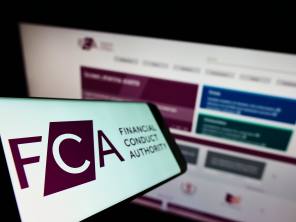

Over-confident consumers think they can spot fraudsters, but many miss red flags such as high investment returns, cold calling and offers of free advice, the consumer rights body said.
Scammers’ tactics are also shifting, the Citizens Advice Bureau found, as they move away from pushing pension liberation schemes offering high rewards, towards other tricks such as ‘free’ pension reviews and ‘advice’.
Citizens Advice is calling on financial advisers, the regulator and providers to take responsibility for helping to stop people falling foul of fraudsters.
Looking at a company’s website or talking unsolicited offers over with family members are often the only checks people do before handing over their life savings, the research found.
Additionally, its online poll of 2,006 adults between the 19 and 21 February this year revealed people are particularly at risk of scams from phone calls, post and emails.
As many as 10.9 million consumers have received unsolicited contact about a pension since April 2015, based on data from an Office for National Statistics Populus poll for Citizens Advice.
The consumer body’s research also showed consumers aged 55-64 are most likely to take advantage of the pension freedoms and receive such calls. In this group, 33 per cent reported being contacted since April 2015.
Out of all the consumers surveyed, almost two thirds of consumers - 64 per cent - said they would consider an unsolicited offer about their pension and many would only consult informal sources about whether the approach is genuine.
When asked how they would check whether a pension offer was legitimate, almost half of those who would consider an unsolicited offer about their pension - 45 per cent - said they would look up a company’s website and over a third - 36 per cent - would discuss with family.
However, only one third of people - 33 per cent - said they would make sure they company is listed on the Financial Conduct Authority’s online register.
Citizens Advice wants regulators and the industry to act to prevent people falling for fraudsters’ tricks. It is calling for:
• Pension firms should work with Project Bloom members to continue promoting awareness of scam warning signs to consumers;
• Extend the FCA ScamSmart portal to include scam warnings for possible advice/review scams;
• Bodies such as Action Fraud and the Information Commissioner’s Office should continue monitoring levels and types of pension contact and respond to emerging scams/trends;
• Financial advisers should avoid using lead generators who make unsolicited calls or use high pressure tactics.
Gillian Guy, chief executive of the Citizens Advice Bureau said: “Fraudsters have shifted their tactics to rob people of a retirement income.
“It’s difficult for consumers to stay ahead of pension scams as they evolve. Many scammers use professional looking websites and leaflets to fool their victims into signing up to free pensions advice or cold call with offers of unusually high investment returns.”
Daren O’Brien, director of London-based Aurora Financial Solutions said:“Unfortunately due to the costs involved in providing this clearly needed advice, there has become an advice gap which is being exploited by these crooks.
He added that hopefully the new review announced in the Budget regarding the Money Advice Service would help clients better navigate this minefield and find a solution that will include IFAs.
Scott Gallacher, chartered financial planner at Leicester-based Rowley Turton said: “It’s frustrating that people continue to fall for these scams.
“Honest financial advisers are no doubt sat in their offices wondering how to get more clients, whilst at the same time, many of those potential clients, untrusting of professional financial advisers, are seemingly willing to hand over their life savings to any cold caller with a great investment story.
“I’d urge anyone wanting investment advice, or a review of their financial affairs, to only deal with a regulated financial advisers, which can be found via sites such as VouchedFor or Unbiased.”
ruth.gillbe@ft.com



